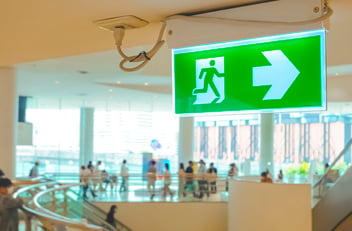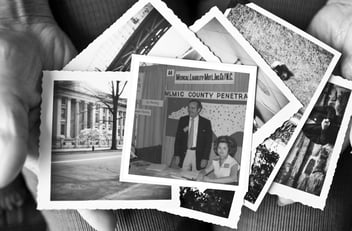Disaster, Adverse Event, Incident, Accident – The ABC’s of Unanticipated Failures

Donna Nicholson explores the various ways that you can prepare your practice and staff to be ready in the event of an emergency situation.
There is so much news lately about natural disasters, flooding, fires, mud slides, huge amounts of snow, as well as cyber-attacks, active shooters, etc. Now that we are nearing the end of hurricane season, we also experienced multiple storms over the past few months.
Do you ever contemplate preparedness? If you are like me, I just assume there will time in my day, one day, where I can get caught up and consider such preparedness. After all, “those things will never happen to me and my family.” But could they?
On the personal side, it doesn’t have to be a natural disaster to catch your lack of preparedness off guard. What about a death in the family, what if you are personally injured or incapacitated? What if your home burns or is burglarized? Have you prepared?
When I think about preparedness in these instances, I am thinking of the ability of your “trusted person”, whomever that might be, to pick up and pay your bills, know who your attorney is, access your bank accounts, pay your mortgage, know who your insurance carriers are, etc. There are plenty of free resources to help you with that recommended list of key points. You just need to make the time to take care of your personal preparedness.
But what about your office and work team?
Of the adverse events this year, there were two catastrophic commercial property fires in our state. Evacuations were required of the buildings affected, as well as surrounding buildings. One of those adjacent buildings requiring evacuation was a multi-level physician practice, full of patients and staff. The orders to evacuate were sudden and required quick action.
Have you considered, designed, and trained your staff on the optimal evacuation procedures? How would you notify patients with upcoming appointments of their need to reschedule and not come to the practice site? Can you access your appointment schedules remotely but what if the server is damaged? Is there a backup plan in case of a cyber-attack?
In each of the two fires referenced above, an employee tragically lost their lives. These were two completely different fires, different geographic locations, and different industries. But the thing that the two workers had in common were that they were each new hires, having recently started their employment with the respective companies.
I do not know or presume what training they had related to emergency evacuation. For our physician practices, we urge you to remember that at a minimum, all your staff members, volunteers, temporary help, clinical students, etc. – everyone in your practice deserves and requires safety training relative to their respective roles should there be a disaster. Even if they are only in your practice for one day, the manager in charge is responsible for assuring the safety of his/her area team members and patients. Current staff training and refresher training, role play, etc. is so very important.
We have two resources which may be helpful to you:
Webinar: “Surviving an Active Shooter” with Officer Jonathon Frisk
https://vimeo.com/834157105
Toolkit: “Disaster Planning for the Medical Office” [Curi member only resource]
https://curi.com/resource/disaster-planning-medical-office/
Disclaimers: The opinions and views expressed in this blog post belong to and are solely those of the individual author, and do not necessarily reflect those of Curi Advisory or Curi Advisory’s parent or affiliated companies or their members, insureds, clients, customers, or partners.
The opinions, recommendations, and information provided herein are not intended as legal advice and are not intended to encompass every consideration you may give to dealing with developing policies/procedures related to this topic. We have found that the use of such information may reduce the risk of medical malpractice claims and/or undesired outcomes and we hope you find it useful, but we cannot guarantee that following this advice will prevent a claim against or negative outcome for you or your practice.









Comments